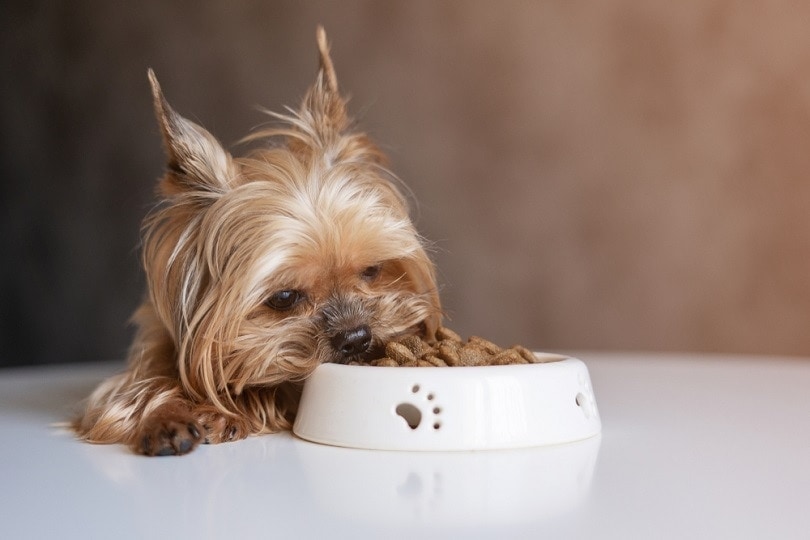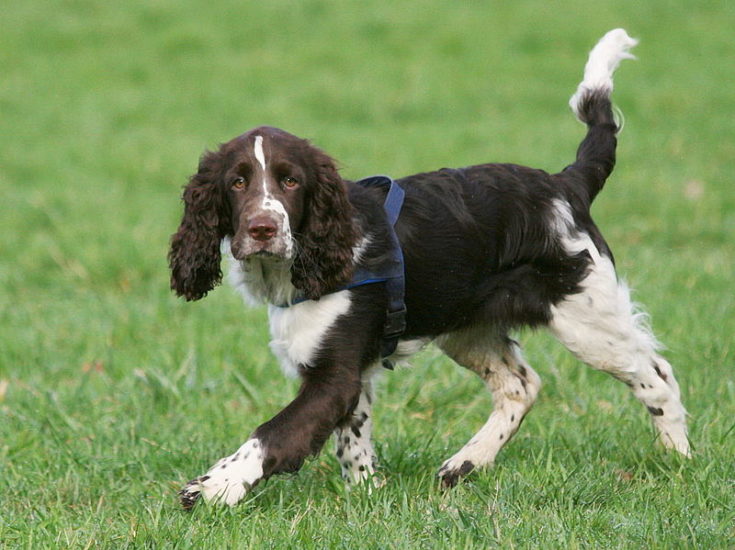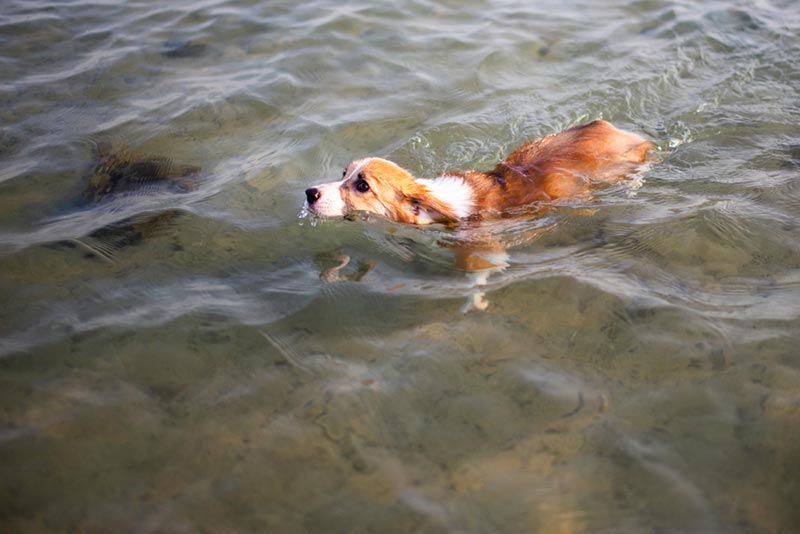Why Do Dogs Nibble on You? 3 Usual Reasons

Updated on
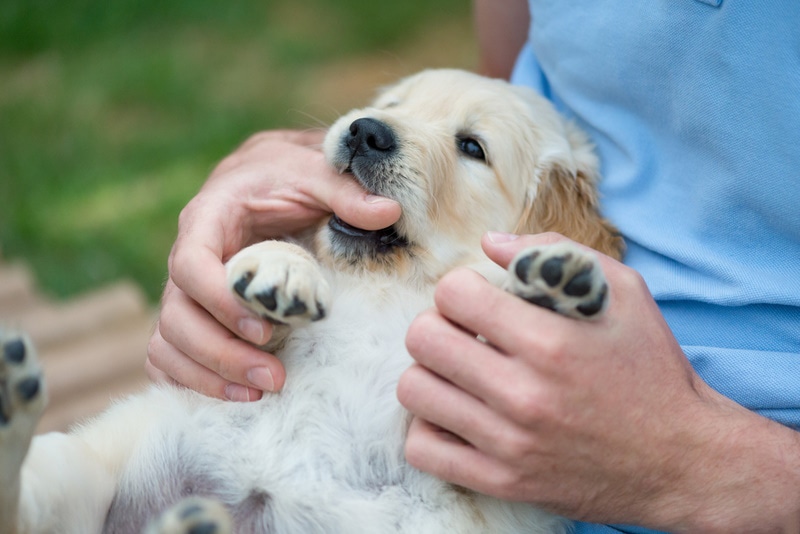
Dogs may not talk much, but that doesn’t stop them from communicating with their mouths in myriad ways. Beyond barking, dogs chew, bite, and nibble to send all kinds of messages, both positive and negative.
While bared teeth and aggressive biting send a loud and clear message, nibbling and soft chewing can leave us wondering what our dogs are trying to tell us. Are they irritated? Do they need something or want affection? Or are they grabbing a bite to see what we taste like? Learn what drives this unique behavior as we explore the three potential reasons dogs nibble on you.
The 3 Reasons Dogs May Nibble on You
1. They’re Showing They Love You
Distinguishing nibbling from nipping or biting is crucial because nibbling is rarely an aggressive action directed toward you. Unlike the rapid biting of a nipping Corgi as they try to herd your children or the full-jaw chew of an attack dog, nibbles are light, scraping bites with only the front teeth. Appropriately enough, some call it “corn cobbing,” “dog cobbing,” or just “cobbing.”
In a neutral state, nibbling is your dog’s way of showing affection. Nibbling as a part of grooming is crucial in social communication. Female dogs often do it with puppies, including offspring of other dogs. Though rooted in maternal functions, nibbling is a ritualized behavior in modern dogs.
Now, its primary functions include communicating positive feelings toward individuals and strengthening bonds. While you pet your dog, they give nips to cement their affection.
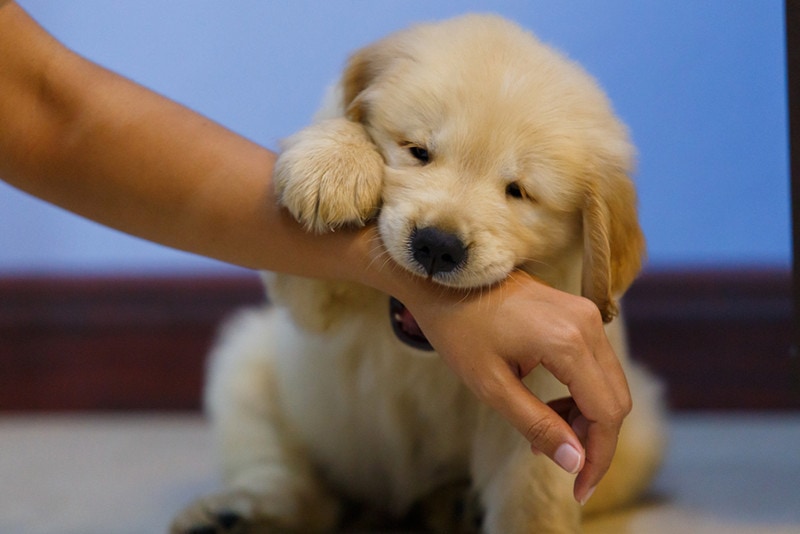
2. They’re Scared, Anxious, or In Pain
Two of the most common instances of dogs nibbling on owners occur when the dogs wake up or during a reunion after long periods of being apart. Dogs use this action as consolation when stressed or afraid, as is typical of many dogs with separation anxiety. They may nibble on you when you’re close or on familiar and favorite items, such as blankets or toys.
3. Your Dog Is Excited
Dogs nibble each other in numerous positive, negative, and neutral moments. As with their owners, dogs may lightly nibble friends after being separated. Doing so is typical during breaks in playtime or when you take them on walks. If you’re at home, your dog may nibble to get your attention and indicate they need stimulation.
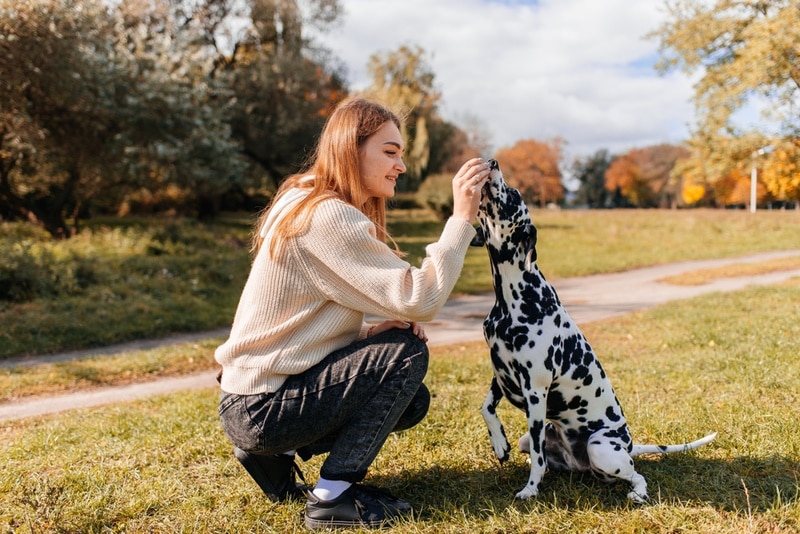
Is Nibbling a Sign of Submission?
Dogs only nibble close affiliates, including owners. It is not necessarily to show submission or affirm your role as pack leader. In groups, submissive and dominant dogs nibble regardless of hierarchy. Dominant dogs may do it with submissive dogs to show affection and enhance emotional bonds without yielding authority.
Nibbling may also accompany face licking as part of the grooming routine, which is a distinct action from submissive muzzle licking. As with some other animals, including primates, mutual grooming can also act as a way to decrease aggression.
Your dog may even nibble on other pets in signs of kinship. When your dog does it to you, it isn’t to promote anyone’s social status but to reinforce your emotional ties.
Do All Dogs Nibble?
Nibbling is not extremely common among dog groups, and although there isn’t any social status tied to the behavior, some dogs are likelier to nibble than others. Some believe certain dogs may be more emotionally reactive and prone to nibbling. Affectionate signs like licking and nibbling could also decrease with age, possibly due to lower activity levels.
Should I Do Anything About My Dog Nibbling on Me?
Nibbling isn’t usually painful and, as a sign of affection, rarely something you need to discourage unless your dog slobbers all over you. If your dog’s nibbling is separation or anxiety-related, as you may see when you get home, you should assess the underlying cause. While nibbling alone may not be problematic, nobody wants their dog to feel stressed or nervous.
Establishing a consistent routine and focusing on enrichment in your dog’s environment can help them stay at ease and provide stimulation while you’re away. Give them various treat-dispensing puzzles and chew toys, or put the TV on their favorite show when you exit. Exercise with them for about 30–60 minutes before leaving to help them burn off any excess energy, and when you depart, keep it as low-key as possible.
Excited nibbling is another non-issue unless it progresses to chewing, a common occurrence with playful puppies. Though they’re typically innocuous, addressing these behaviors sets crucial boundaries they’ll carry to adulthood. If your dog nibbles before or during an activity, use positive reinforcement and redirection to have them focus on a different chewing material.
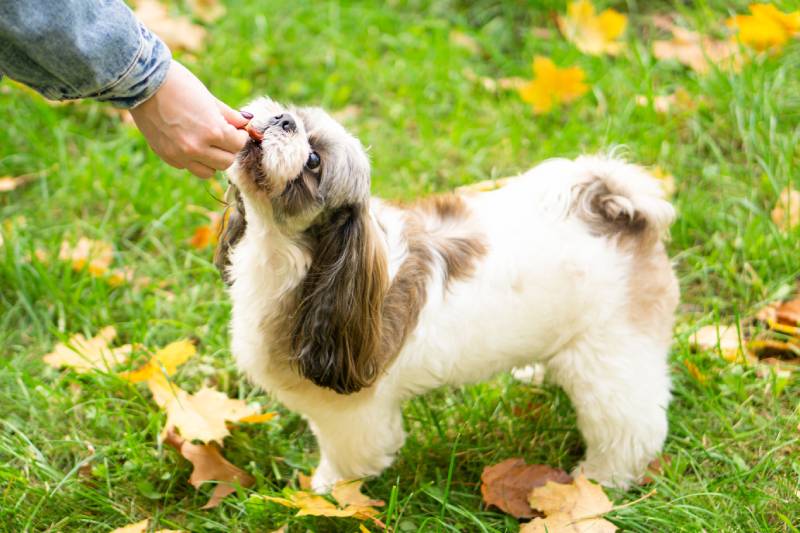
Conclusion
A dog may nibble on you for several reasons, ranging from stress and fear to love and affection. While you may have to find context clues to figure out why your dog is nibbling, your response likely won’t change regardless. Comforting a scared dog looks an awful lot like reciprocating signs of affection. When your dog starts giving you those light little bites, it’s your cue to give them attention with scratches, cuddles, and anything else to improve your bond.
Featured Image Credit: demanescale, Shutterstock


